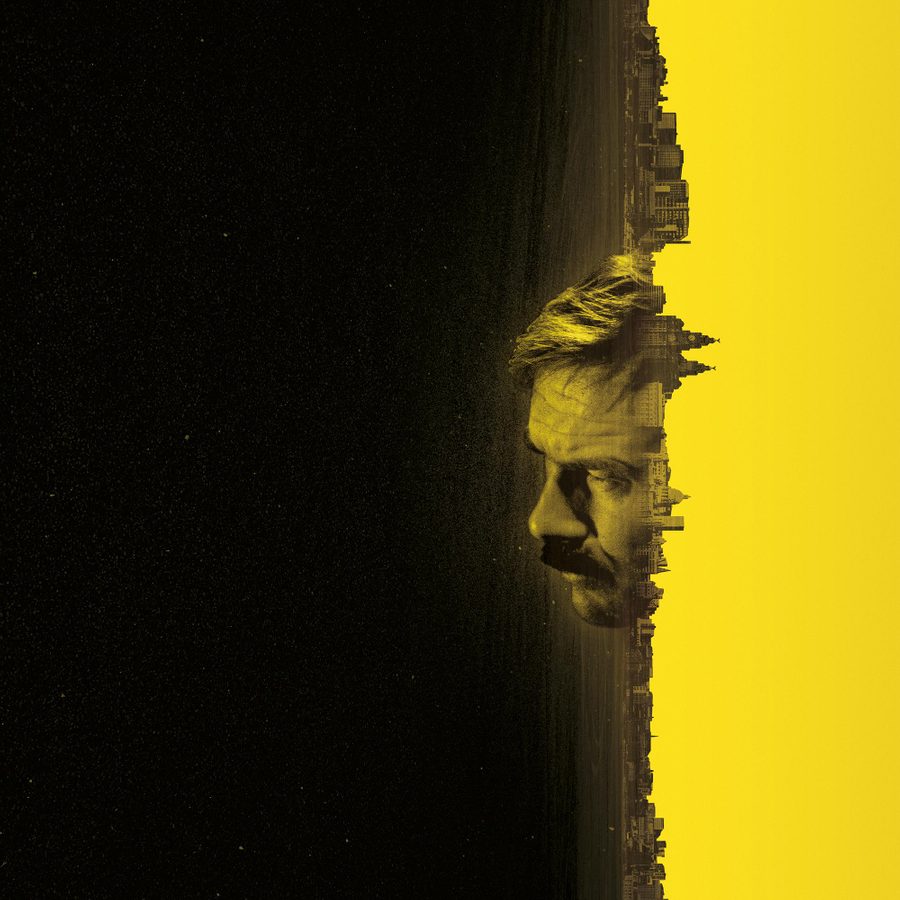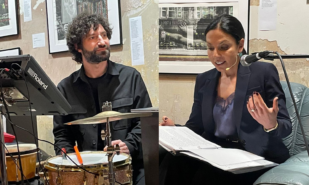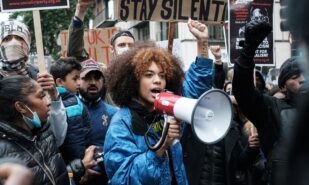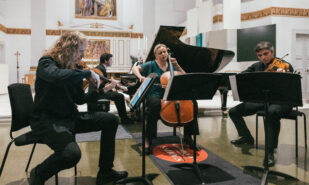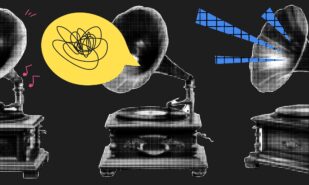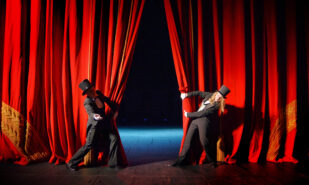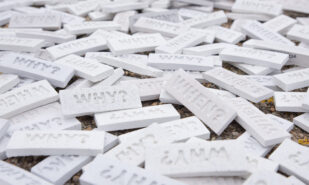Get Me Out of Here?
“Boys from the Blackstuff” was directed by Kate Wasserberg at Liverpool’s Royal Court. After a highly successful run, the performance was invited at the Olivier Theatre, followed by a move to the Garrick Theatre. This is James Graham’s adaptation of Alan Bleasdale’s famous play, originally written in 1982, reworked for the stage from the script of the six-part TV film of the same name.
“Boys from the Blackstuff” was directed by Kate Wasserberg at Liverpool’s Royal Court. After a highly successful run, the performance was invited at the Olivier Theatre, followed by a move to the Garrick Theatre. This is James Graham’s adaptation of Alan Bleasdale’s famous play, originally written in 1982, reworked for the stage from the script of the six-part TV film of the same name.
The setting is a port. The red frames of cranes, dusty lights, and the drowsily glowing windows of warehouses. Huge gates separate the white and yellow-lined ground from the heavy sea waters. There’s a lot of cold corrugated iron.
Boxes. Crates. Bags.
Buckets, trowels, beer mugs.
Blue, slate, grey, rusty, dusty.
Five lads are looking for work. Five lads with different destinies, aspirations, abilities, and even ages, united by one misfortune – unemployment. It’s the early 80s. Sheepskin coats, high boots, the coolest music in the world. But no, there’s no nostalgia for this golden era here, except for the songs played before the show. Talking Heads, Blockheads, Springsteen. The final song before the first act begins is “Glory Days.” Indeed, they were! Those roaring 80s when the best rock albums were released, hits of music and cinema were made, and the magnificent wedding of Diana and Charles took place, were unbelievably tough times.
The story is simple – it’s a confrontation between our unemployed characters and the labor exchange, whose employees sniff out whether benefit claimants are secretly working to avoid paying taxes. They spy, plot, provoke. And our five men, just to survive and feed their families, have to be cunning. They take odd jobs on construction sites, not knowing if they’ll be paid at the end of the day. They hide from snoops, lie, and endure endlessly.’ You’ve seen desperation explode into flames, and it’s impossible to watch this calmly. A person’s life is so tiny and fragile that it can be swept away with one coldish question, with a stroke of a pen.
Back in 1982, the TV film made a colossal impression on viewers, almost documentary-like, because it’s impossible to view your own life while living it. The film was about poverty, hopelessness, desolation, and hard living. The play, however, is about life and ultimately about humanism. All six TV episodes are full of domestic details from the 80s, with everyday life becoming another main character alongside the people. Teapots and towels, sofas and worn wallpaper, boys poking curious noses into the camera. The theater can’t keep up with this, nor does it need to. It makes do with iconic details like milk bottles or a chair with a doily on the headrest. The theater doesn’t live inside the story; it reinterprets it from today’s perspective. The film and the play are inevitably compared, which was a risk for the theater, but ultimately defined its victory.
The theater treats the film with respect, not so much quoting it, but paying elegant homage. The main one is the costumes of the main characters. Yosser’s black coat, Chrissie’s jacket, Loggo’s (Aaron Julius) ginger sheepskin coat – recognizable nods to the cult film of the 80s. The shrewd businessman Malloy (Dominic Carter), the confident, well-grounded construction manager in his well-tailored coat.
In the play, Yosser (Barry Sloane) is a man visibly sinking into his dark madness. In the film, he’s always surrounded by his three little children, whose mother left them for another man. In the play, there are no children – Yosser talks to the air. The viscous state pulls him in, like dark, oily water at the pier. He starts a fight, lumbering like a bear, delivering his signature headbutt – and the audience gasps nervously every time, as if they didn’t expect it.
The audience reacts lively – as if forty years haven’t passed, but more likely because the heroes’ struggles are still relevant. Laughter bursts out at political jokes, but mostly empathy fills the room. Yosser’s terrifying final scene – the fight with the police – is long and agonizing. All the characters move in slow motion, and the audience sees every swing of the rubber truncheon, every fall, every turn of the powerful shoulders. “Gizza job!” – the now completely insane Yosser repeats like a prayer or mantra. They won’t give it. They’ll take away the last thing he has.
The second important character is Chrissie (Nathan McMullen) – just a very good person. Playing a good person is very difficult, especially in the theater, with a limited set of lines and scenes. The most heartbreaking scene is not even the fight between friends Chrissie and Yosser, but the moment when Chrissie eats three slices of bread meant for the children’s breakfast. And there’s no more bread. And no money. And his wife – a beautiful blonde, thin and long-legged like an evening moth in a fashionable colorful jacket with wide sleeves – breaks down in an ugly hysterical fit. They love each other very much, Chrissie and Angie (Lauren O’Neil), but even such love, driven to the extreme, sometimes hides. She hits him with her fragile fists and cries, and he tries to dodge – and falls on the rug, then jumps up, grabs a gun and… bang!! – over his beloved dead rabbit, Chrissie cries out loud, and Angie hugs him tightly.
The leitmotif of the play is the feeling of humiliation. Endless, burning, caustic, like aqua regia. The labor exchange – identical pens for one person, numbered, monotonous questions, condescending, ingrained, familiar contempt. Occasionally, one of the heroes can’t take it anymore – but every protest breaks against the cold glare of the government lady’s glasses, standing above these numbered pens on a light metal gallery.
It should be noted that the play’s ending is a bit more optimistic than the film’s from forty years ago. Yes, it turns out they were building another labor exchange building. Yes, Yosser loses everything – but we see him at the end, unsteadily walking towards Chrissie, rather than going to drown himself. Yes, Chrissie slumps wearily but accepts Malloy’s offer of legal work. And one of the labor exchange clerks rips off his badge, losing his job, joining the ranks of the tormented, lost, humiliated – but not losing heart.
Let’s try to round off our narrative by jumping back to the songs of the 80s and precisely to 1982. Remember Dire Straits’ long ballad “Telegraph Road”? Where the tired baritone sings, “I used to like to go to work, but they shut it down”? And later, he promises his beloved, “But just believe in me, baby, and I’ll take you away // From out of this darkness and into the day…”
Will he take her away? God knows. The good guy Chrissie couldn’t take his Angie away. He couldn’t take her away, but it’s clear from this ending that he will carry on.

